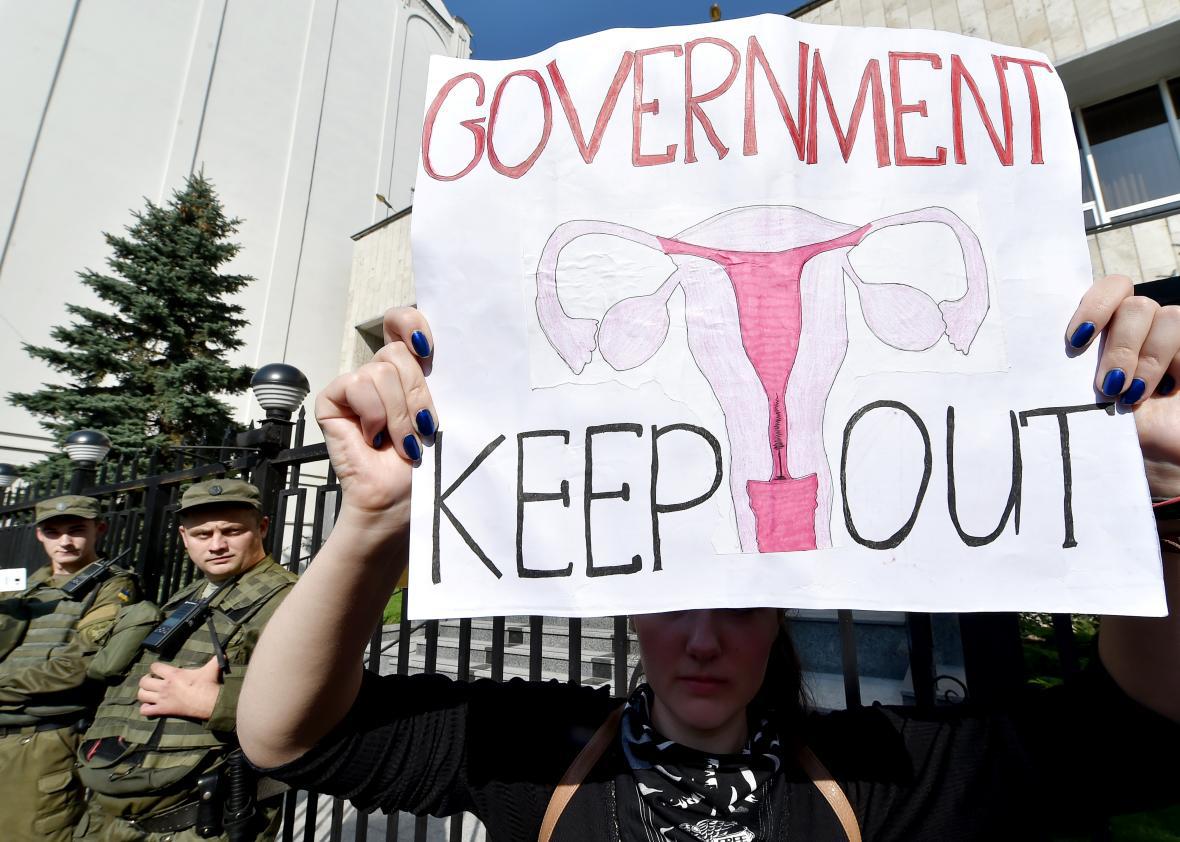A study published by JAMA Psychiatry this week provides new, compelling evidence that abortion regret is extremely rare. The study compared women who had abortions shortly before a clinic’s gestational limit—which ranged from 10 weeks through the end of the second trimester—to women who tried to get abortions but were turned away because they were a little bit over the clinic’s gestational limit. (Some of those women ultimately obtained abortions elsewhere; others ended up giving birth.) Researchers interviewed both groups of women one week after they sought an abortion and then every six months for the next five years. At first, the women who unsuccessfully sought abortions reported more anxiety, lower self-esteem, and lower life satisfaction than the women who got the abortions they wanted. However, within a year, both groups reported negative mental health outcomes at similar rates. Those rates remained comparable over the next five years.
The study’s finding that women who obtained abortions had similar mental health outcomes than women who were denied abortions isn’t surprising. Most prior research on the question of whether abortion has mental health effects has found that the vast majority of women do not regret their abortions. Anti-abortion lawmakers simply ignore this research, and nine states require women to receive counseling on the ostensible psychological toll of abortion before they have the procedure. That mandated counseling has always been based on false premises, and it looks increasingly deceptive in light of the new paper. “There is no evidence to justify laws that require women seeking abortion to be forewarned about negative psychological responses,” the paper’s authors write. “Women considering abortion are best served by being provided with the most accurate, scientific information available to help them make their pregnancy decisions.”
If the premise of the new study sounds familiar, it’s because it draws on a dataset that has previously appeared in more than two dozen other peer-reviewed papers. This dataset was collected by a University of California project called the Turnaway Study, and it’s valuable because it compares two very similar groups of women who fundamentally differ only in whether they got the abortions they sought. Earlier research compared women who got abortions to women who never wanted abortions in the first place, which introduced a lot of confounding factors.
What makes the new paper different from, and more robust than, other Turnaway Study papers, is that it considers five years’ worth of data on women who either had abortions or were denied abortions. Five years is the amount of time that the famously pro-life Surgeon General C. Everett Koop suggested tracking women in a 1989 recommendation to see if women who got abortions experienced adverse effects. The new paper is the first well-designed study that fulfills Koop’s recommendation, and it finds that “women receiving wanted abortions had similar or better mental health outcomes than those who were denied a wanted abortion.” If anti-abortion politicians truly cared about women’s well-being, they would amend their state-mandated counseling and inform women seeking abortions that they are highly unlikely to experience negative mental health effects from getting an abortion. Of course, anti-abortion politicians don’t really care about women’s well-being—and in the age of Trump, they feel emboldened to spread whatever lies it takes to prevent women from getting the care they need.
